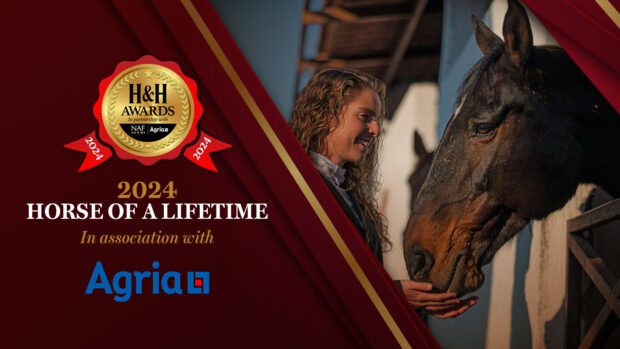Age is not a disease, it is simply a passage of time. A horse only becomes a geriatric when it has significant geriatric disease — until then it can continue to work within its capacity.
The average age of a horse has risen from around nine years in the early 20th century to around 19 years now. This change is partly due to a different emphasis on their use and partly due to regular routine care, such as vaccinations and worming, into old age. We now pay great attention to the welfare of the horse regardless of its age, and with this comes the reward of a closer and longer relationship.
Effective veterinary treatment plays a major role in keeping horses active, and many owners now offer a retirement to their trusted and faithful friends. Sometimes this is in the form of a genuine retirement from work, while in other cases it is simply a quieter or different lifestyle.
It is inevitable that as our horses get older, they become liable to natural changes in almost all organs and body systems. In particular, changes to the horses teeth and digestive tract can have far reaching implications.
Long in the tooth
The progressive wearing of the chewing molar teeth causes the grinding surface to become less efficient. It becomes harder to chew fibre effectively, swallowing may become difficult and the horse may quid (drop lumps of half-chewed feed out of the mouth).
Failing to chew properly reduces the efficiency of digestion and the combined effects of reduced intake and less efficient digestion can result in:
- weight loss
- colic, as a result of impactions
- diarrhoea, as a result of water retention in the bowel
Abnormal tooth wear can result in very sharp edges or overgrown teeth, and pain partly due to arthritis in the jaw joints. This can lead to a vicious cycle — painful chewing results in an abnormal chewing pattern, which, in turn, causes more pain.
Once serious changes have taken place in the jaw joints, there is little that can be done apart from administering pain-killing drugs and altering the diet to make it easier for the horse to eat. However, the latter may accelerate the deterioration of the teeth as they will not wear in the normal way.
Natural shedding of molar teeth occurs as the horse gets older. There is little or nothing that can be done to prevent this but it does occur at different ages in different horses, depending on the type of food they eat and the general health of the mouth.
Generally, horses less than 10 years old should have a proper dental examination once a year. Horses between 10 and 20 should have two examination per year, while those over 20 may need three or more examinations per year, so that overgrown, sharp and unbalanced or unlevel teeth can be corrected. Loose or broken teeth should be removed.
In addition to tooth problems, older horses also have a less efficient hind gut, which results in fibrous foods being digested less effectively, even if the teeth are normal.
Properly formulated “senior” rations that are digested in the small intestine and contain the fibre required to keep the hind gut functional will go a long way to counteract this. Any veteran diet needs to take into account the changes to the digestive system and the lower level of dental efficiency.




